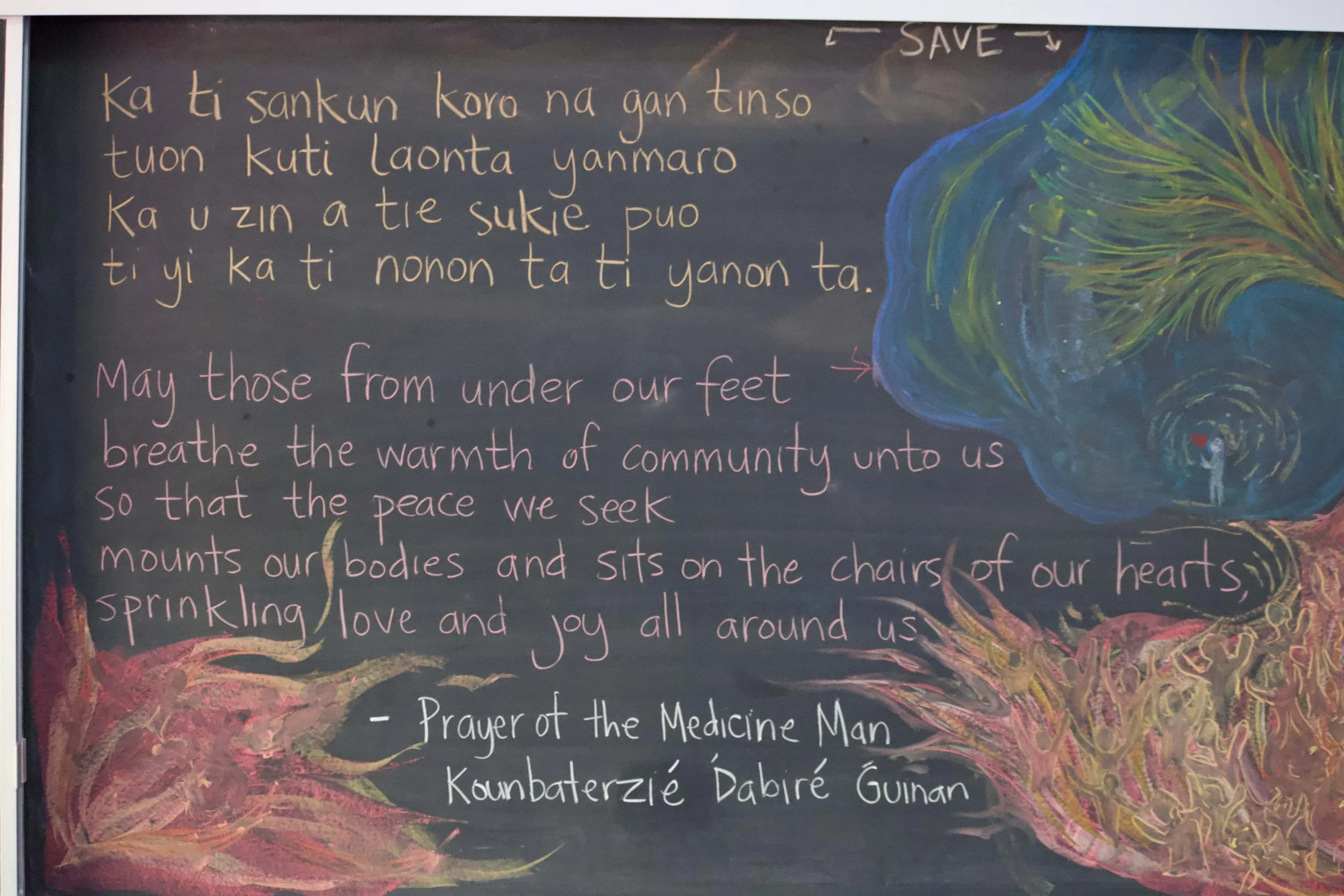Decolonizing the Classroom and Practicing Deep Listening with Adolescents
In the World Literature Main Lesson, the students actively cultivate the skill of "deep listening," a term that was popularized through the teachings of the late Thich Nhat Hanh. Deep listening is also a way to understand Rudolf Steiner's understandings of the higher senses (hearing, language/speech, thought/concept, and self/ego), which we used in an interconnected way to sense the totality of another person. No small task, clearly! And so urgently needed in our world.
The design of this Main Lesson is based on an oral history class I previously taught. The method I have used to teach this block extends efforts to decolonize curricula by questioning the very structure and hierarchical nature of the traditional classroom itself.
A poem used for speech recitation in the first week of World Literature
High School Humanities classes provide a unique opportunity to think through decolonization, both of content, which has become quite common practice, and of methodology, which, at present, is much less explored. There are many reasons for this, primarily developmental ones. First, adolescent students are more awake to and aware of the situatedness of characters and narratives they are being asked to study. Similarly, they are able to engage in more rigorous self-reflection on the learning process itself and how it impacts them. Finally, many young people today are coming to expect diverse representation in the types of stories they are asked to study, and teachers need to be ready to address this expectation. While these considerations are pressing in developing literature-and history-based curricula, they are also applicable across disciplines and for a wider age range. Even teacher training and credentialing programs are seeing an increased demand that issues of diversity, equity, inclusion, and justice be incorporated into the way curriculum is designed and delivered, so we can only anticipate that these conversations will grow in the coming years. You can read more about this in the article I wrote for Research Bulletin, the main research journal on Waldorf education.
In addition to refining their listening and storytelling skills, students also complete original ethnographic research, integrate different worldviews about what constitutes reality, and investigate the relationship between education and healing. To that end, I am seeking with eagerness any elders who would like to participate in intergenerational storytelling circles on Wednesday, December 6 and Wednesday, January 17 from 8:45–10:15am. These circles are a way to strengthen connections between those who are just starting to seek their purpose and those who have so much life experience and wisdom to share. Please contact me with questions or to RSVP.
I wanted to offer my heartfelt gratitude for the gift of being with these students, who in the course of this Main Lesson say things like, "I am trying to listen with more than just my ears" and who ask, "How does self-transformation actually work?" and "What can I do with what I know in order to make the world a better place?" These questions—taken directly from their daily reflections—help me feel so lucky and blessed to be asking them with the class. I can't wait to see what's next.

